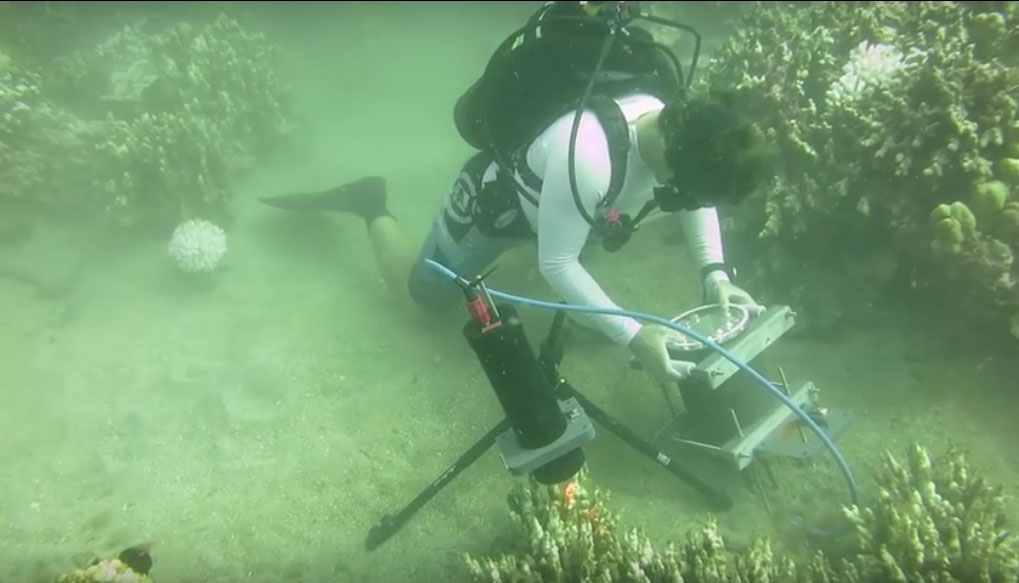Medical Cannabis in the Workplace
HOW NEW MEDICAL CANNABIS LAWS MAY AFFECT THOSE LOOKING FOR WORK
The eclectic audience was an energized group of anticipatory individuals. The intellects were here, the correct memo must have gone to the right “mean girl,” because all of the preppy people were here, too. And then there was the group from their “Abnormal Psych” class, analyzing the rest of us.
In addition to each of those groups of people, there were of course, the “stoners”. As I looked around, however, I realized how hard it was to try and identify who the latter group was comprised of anymore.
Was a “user” a young student just trying it while they were away at college? Or was it a young soldier, fresh back from a tour suffering from post- traumatic stress disorder or a severe anxiety disorder? The user, I realized, could be a middle-aged woman in the crowd, suffering from rheumatoid arthritis, prescribed medical marijuana by her physician to try and alleviate her daily aches and pains.
There were so many different reasons that people were using medical cannibas these days, that I really had a hard time in distinguishing the likes of someone who was using cannibas, compared to someone who wasn’t.

Legalize It? Marijuana Policy Experts Aaron Houston and Dr. Kevin Sabet Debate Reefer Policy at Northern Michigan University, Monday, March 31, 2014. Event sponsored by Platform Personalities student organization. (Marquettemagazine.com photo by Erica McMillan)
The debate started like any other, with Mark Surrell of Platform Personalities mediating the debate and, luckily, not having to use a heavy hand to do so this night. Dr. Kevin Sabet was granted the first 15 minutes to use the microphone as his delivery tool for his message.
Dr. Kevin Sabet is a former three-time White House drug policy adviser and current director of SAM (Smart Approaches to Marijuana), which he co-founded with Patrick J. Kennedy. I listened intently to Dr. Sabet, who spoke of legalizing marijuana like how Big Tobacco or alcohol has worked or not worked in the past.
Aaron Houston co-founded the Marijuana Majority and is a nationally recognized expert on drug policy and marijuana law. He spoke of how legalizing marijuana would be a positive, increasing tax dollars and saving the billions of dollars that have been spent on law enforcement with regard to the drug.
I had attended this meeting back in March at Northern Michigan University’s now non-existent Jamrich Hall, in part to see what all the controversy was about. The legalization of both Medical and Recreational Marijuana had become not only a national, but also a local issue, and I wanted to hear what both sides had to say.
I also had the opportunity to attend a Legalize Marijuana meeting last spring, at the Dead River Coffee Company. Attendance was quite low, in part due to the fact that it was held during Spring Break at NMU, which was an admitted oversight.
I had the opportunity to speak at length with some of the meeting’s facilitators and learned that the fight to legalize cannibas in the city of Marquette has been on-going for quite some time, now. Although there is no difference made by them in regards to recreational versus medicinal cannibas, there are many people involved in this movement.
In the City of Marquette, there used to be a dispensary as well as a few head shops, all of which are now closed. There are several new businesses in the area that carry smoking paraphernalia, but no new dispensary to date. There are many opinions surrounding the pros and cons of legalization of this plant, and the debates will only continue as we head towards the next election races.
Having a background in Human Resources, I wondered how testing for Medical Marijuana for the workplace was being monitored. Obviously, I am not referring to being under the influence while at work, but simply about having it in your system.
If a person is hired for full time employment, at most local businesses, they will be required to pass a mandatory drug test. I wanted to know how that would fare for someone who is legally allowed to both possess and consume the likes of cannibas. Was it treated as any other prescribed medication, or was it an immediate dismissal by the employer?
How was it, I wondered, that a potential employee could have a prescribed medication such as hydrocodone (for an injury) in their system and be hired, while that same person could have an illness or condition requiring cannibas and NOT be hired? It just didn’t seem right to me. Especially since at this point in the great state of Michigan, they are both considered legal to prescribed patients.
I decided to dig a little further. When contacting a local employment agency, I was answered with the fact that it is a “don’t ask, don’t tell” type of agreement. For the employers that did not drug-screen, it was a non-issue, obviously, but there were a local of employers in the area that still conducted said tests, both pre-employment and in the case of a job-related injury.
So let’s say that someone has successfully beaten a disease, or is living with one, and has their license to have medical cannibas, yet is looking for a job. Let’s say that the same person is receiving Social Security benefits and wants to successfully return to the workforce. How does it not seem as though the drug/employment laws here are a bit one-sided?
The current system of mandatorily testing potential employees and NOT hiring them if cannibas shows up on their test seems quite unfair. Whether a person is prescribed Nexium for heartburn, Viagra for erectile dysfunction or cannibas for a specific illness/condition, why should they not then be treated the same?
Michigan has a very high unemployment rate and has legalized medical cannibas…that to me seems a little more than coincidental. How many people, I wonder, in the state of Michigan have been denied employment for failing a mandatory drug screen? I took a look at states like Colorado and Washington, who have now have both medical and recreational cannibas legally available to residents, and was amazed with how much their economies have been boosted by doing this.
Colorado, for example, has just celebrated their six month mark in their plight of having legalized medical cannibas. They are seeing lower crime rates, increased tax revenue and the marijuana industry, as a whole, has developed quickly, generating hundreds of new jobs.
The Marijuana Industry Group (MIG) estimates there are currently about 10,000 people directly involved with this industry, with 1,000 to 2,000 gaining employment in
the past few months alone. There is a growing need for everything from greenhouses and fertilizer to pipes and vaporizers, compounding the economic benefits.(http://www.thedailychronic.net/2014/33932/marijuana-legalization-in-colorado-six-month-status-report/)
I investigated a bit on some local employers, and found that Marquette’s single largest employer, Marquette General Hospital, is one that requires mandatory drug testing as a pre-employment requirement. I also found that Northern Michigan University is a zero tolerance employer. Any and all of their staff, full or part time, adjunct or per diem, are required to pass a mandatory drug screening prior to being hired.
It just seemed amazing that, in most local employers drug policies, those who tested positive for medical cannibas were treated very similar to those applicants who had illegal drugs in their systems such as Cocaine or Heroin.
Looking for a job anywhere right now, specifically in the Marquette area can be quite a daunting task. Whether utilizing our local Michigan Works office, the Manpower office or by searching through the Marquette Mining Journal, keep this in mind: check with your potential employer on their policy regarding medical cannibas, regarding both pre-employment and random drug testing.
There are definitely positions out there that require you to be drug-free all of the time, whether working or not, which include but are not limited to truck drivers, nurses, doctors, dentists, teachers, and day care providers, all for good reason.
There are employers out there who treat it like any other prescribed medication, and then there are those that do not. It can be quite a vulnerable subject, as you’re all but admitting to using it, but at least you are being upfront with them.
For employers that have a zero-tolerance drug policy, medical marijuana presents a big problem. In some states, they may no longer have the legal right to fire authorized users for failing a random drug test, or they could face wrongful termination and discrimination suits if they do. Currently, there are no grounds to fight against being denied employment for using cannibas, but that may all soon change. (http://www.realbusiness.com/2014/08/higher-ground-medical-marijuanas-effect-on-employment-laws/)
Until more laws change, and protect those who are prescribed this form of medication, it really is a mystery to the rest of us on just how it will affect everyone. We’ll just have to wait and see how our government (federal, state and local) is going to handle this ever-changing type of closely monitored medication.
For right now, it is an option that many people are going to use, opting to use medical cannibas over other prescribed pain medication, specifically opiates. At this point in the State of Michigan, if you have your card, you are legally permitted to use and possess a closely monitored number of plants. That may seem all fine and good, but if you’re also actively seeking employment, you may still have to look for alternative methods in which to do so.















You must be logged in to post a comment Login